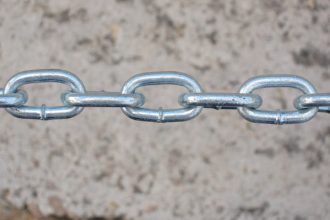Jacob knew all about God. He must have. He must have heard stories about this God and His covenant from his grandpa Abraham and his father Isaac. Maybe his daddy had told him about the day when grandpa took him up the mountain with a knife and wood but no sacrifice; how he strapped him down; how the tears filled his eyes and then how he heard the voice from on high. He knew about God.
But on the other hand, he was a classic avoider of conflict. He was much more prone to manipulation than he was to hashing things out. When the going got tough, Jacob was not someone of perseverance but someone who cut and run. He ran from his dad. He ran from his brother. He ran from his uncle. But he could run more more. He was on the brink of meeting the brother he had swindled and cheated years earlier, the same brother who wanted to kill him. And on the brink of that encounter, Jacob found himself in a wrestling match:
Jacob was left alone, and a man wrestled with him until daybreak. When the man saw that he could not defeat him, he struck Jacob’s hip socket as they wrestled and dislocated his hip. Then he said to Jacob, “Let me go, for it is daybreak.”
But Jacob said, “I will not let you go unless you bless me.”
“What is your name?” the man asked (Gen. 32:24-27).
Jacob, who had only trusted in himself, who had trust in his ability to make things happen, his ability to manipulate situations, his ability to handle his own life – Jacob was not ready to give up. Even in the throws of the wrestling match, he was hanging onto his own ability to control his own life. There was one last ditch effort in his mind. And so he held on and brazenly told God, “I won’t let go until you bless me.” I’ve done the same thing, and maybe you have, too.
Even in those moments of crisis when we know there is nothing we can do to help ourselves, we are still hell-bent on our own self-preservation. We hold with white-knuckles to our own ability to fix things in our lives. Jacob was still the fixer, even as he was engaged in a wrestling match with God. It was as if he was hanging onto his ability to make that blessing happen, and then God did something that changed everything. He asked one, simple question:
“What is your name?”
That’s a huge question, for to the Hebrews, the name was much more than someone’s title. The name was the essence of the person’s identity. And Jacob had lived up to his moniker – he was a deceiver. Can you see the light go out of Jacob’s eyes with the question? He’s straining with exhaustion, holding on with all his might, when suddenly his entire life comes into focus with just one question. With this question, God forced Jacob to examine the way he had been living his life, how he had been always committed to doing his best for himself. And now, caught in a struggle he could not win, Jacob had to own up to who he really was.
His arms must have felt weak. Maybe his head started to droop. In shame and frustration, he felt his resolve leave him and he had to answer honestly, maybe for the first time in his life: “I am a deceiver.”
In a moment, we are forced to reckon with our own lack of faith. We are forced to realize the path of selfishness and self-preservation we’ve been on. We are forced to spit out our own name when we are securely held within His grip. Through our clenched teeth, we hear the truth of who we are:
Liar.
Addict.
Manipulator.
Doubter.
Deceiver.
What a hopeless situation! We are brought to bear with the truth of ourselves in the midst of that painful embrace. We do not like what we see. The weight of ourselves threatens to crush us. But then the astounding happens, to us as it did to Jacob:
The One who named the stars in the sky whispers a new name in our ear.
Jacob emerged from the struggle with a new title, but more than that, with a new sense of who he was. He wasn’t the deceiver any longer; he was Israel. And Israel means something much, much different than Jacob. Israel means, “God contends.” Jacob means self-sufficient. Israel is a reminder of human frailty. Jacob means counting on yourself. Israel means trusting in God. Jacob is a commentary on human ability; Israel is an expression of God’s power. Jacob went forth from that moment – from that struggle – no longer the self-sufficient one with trust in himself but as one whose faith was in God to persevere. And that name became the name by which the people of God are still known.
The people who were threatened by nations in the Old Testament and yet God led them through. The people who were caught in slavery and yet God led them through. The people who were caught on one side of the Red Sea and yet God led them through. The people who were disobedient and then sent into exile, but God led them through. And then ultimately, the people who gave birth to the One who knew what it was truly like to absolutely trust in God.
The same can happen for us. We enter the wrestling match with God so sure of everything only to find our world crumbling within His grip. We are forced to reckon with who we really are, in all our doubt, fear, and selfishness, but God doesn’t leave us there. He’s not just fighting for the sake of fighting; He’s fighting for our trust, and when He’s got it, He wants to give us a new name, too.
Son.
Daughter.
Treasured possession.
Inheritance.
Saint.
Brother and sister of the King of the Universe.
Subscribe to MichaelKelley.co
Never miss a new post. Subscribe to receive these posts in your inbox and to receive information about new discipleship resources.




